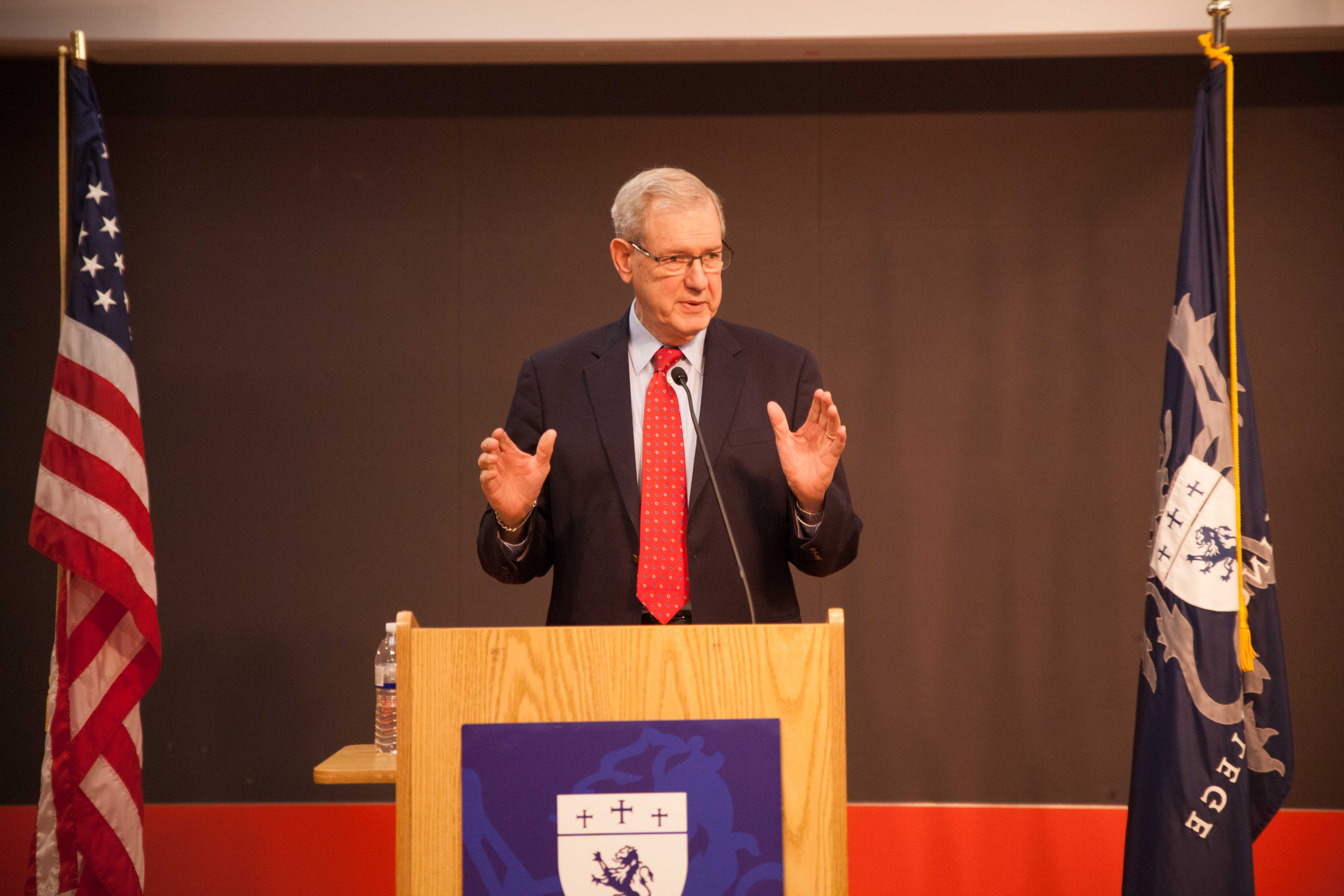Dr. Luder G. Whitlock Jr. Urges Christians to a Unified Cultural Witness
Whitlock’s lecture offered a strong case for the church to stand in contrast to the rest of society, united where many are estranged.

On Monday, April 17, Dr. Luder G. Whitlock, Jr. spoke to a full audience of students, faculty, and staff in the City Room on his book Divided We Fall: Overcoming a History of Christian Disunity (P&R Publishing, 2017). Whitlock is Executive Director of The CNL Charitable Foundation and Seneff Family Foundation, former Executive Director of the Trinity Forum (2003-2008) and former President of Reformed Theological Seminary (1978-2001). He currently serves as president of Excelsis, an Orlando-based nonprofit.
“We live in a toxic world. The high level of fragmentation and contentiousness is dismaying to us, particularly when it occurs in the Christian world,” Whitlock said. He traced the roots of this fragmentation by citing Charles A. Murray, Vance Packard, and Robert D. Putnam, all of whom observed the decline of small, cohesive communities and the sense of isolation that resulted.
Whitlock’s lecture offered a strong case for the church to stand in contrast to the rest of society, united where many are estranged. Today there are hundreds of thousands of church denominations, but the Bible speaks of Jesus’ desire, expressed in John 17, that we should be one, as He and the Father are one.
Jesus’ death and resurrection “brought a new ethic of love of love and caring, of cooperation, and of understanding,” Whitlock said. Citing Rodney Stark, Whitlock reviewed the witness of Christians in the ancient world, where disease and plague could wipe out a full third of a city’s inhabitants. Christians would choose to stay in affected cities to care for the sick, while their non-believing counterparts would flee for safety.
“Why can’t we become a Christian counter-culture that is an attractive alternative to what people are experiencing today?” Whitlock asked.
In the twentieth century, the church in America was divided by a fundamentalist/modernist debate about the interpretation of Scripture in light of scientific findings. Amid this controversy, Carl Henry’s The Uneasy Conscience of Modern Fundamentalism challenged evangelicals to cooperate with one another, and Billy Graham’s preaching compelled and unified diverse groups of Christians. Whitlock mourned that leadership like Henry’s and Graham’s is not more common, but offered The King’s College as an example of a culture-shaping institution that provides an effective Christian witness.
President Gregory A. Thornbury followed Whitlock’s lecture with a question posed to him by David Coleman, President of the CollegeBoard. Though not a person of faith, Coleman had asked, “Why can’t evangelicals choose some sort of project that they could all go in on, that would be a discernible win from a cultural point of view?” Coleman suggested that combating domestic abuse could be a return to credibility for evangelicals.
Whitlock’s response was hopeful: “One of the healthiest things we could do is to ask, ‘What could we do that would make the biggest difference for good?’ If we could unite in doing these things, how would we communicate ourselves to an unbelieving world? We have tended to be very legalistic. An alternative is to look at some of the very serious wrongs that are there, and say, ‘What can we do to improve this?’”




